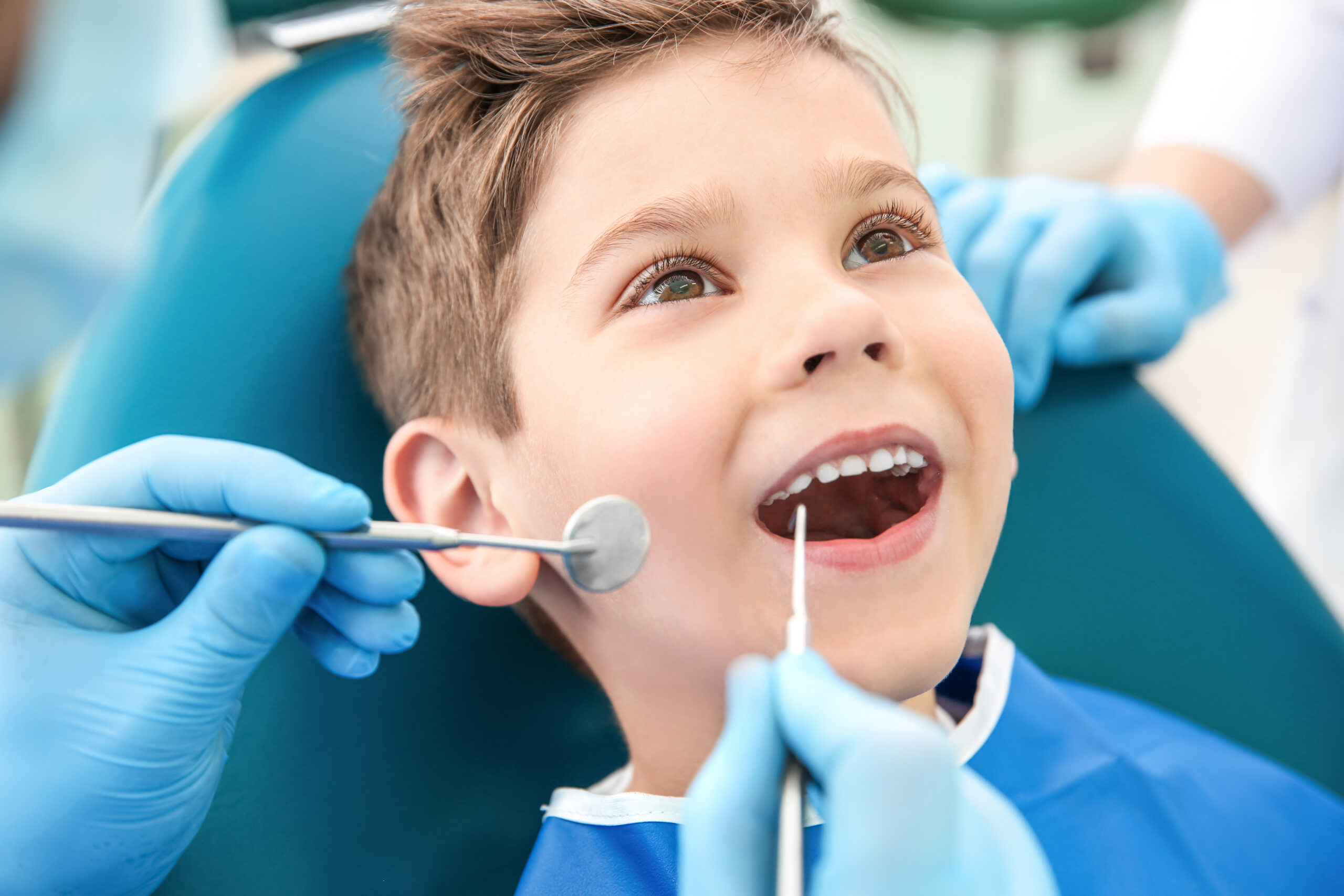As a general and family dentist, one of my favorite parts of the job is treating children. There’s something incredibly special about helping a little one feel safe, seen, and excited about taking care of their teeth. But as a mom myself, I also understand that a child’s first dental visit can come with a lot of questions—and sometimes a bit of worry—for parents.
I’ve had many conversations with families about when to bring their child in, what to expect, and how to make the experience a positive one. So in this post, I want to walk you through everything you need to know to feel confident and prepared for your child’s very first dental visit.
When Should My Child See the Dentist?
This is one of the most common questions I get—and the answer might surprise you. The American Academy of Pediatric Dentistry recommends that a child see a dentist by their first birthday or within six months of their first tooth coming in, whichever comes first.
That may seem early, but the idea is to catch potential issues before they become problems. Early visits help ensure your child’s teeth are developing normally, and they also give you a chance to ask questions about teething, thumb sucking, fluoride, and nutrition.
Even more importantly, starting dental visits early builds a foundation of trust. Kids who grow up seeing the dentist regularly are far less likely to develop dental anxiety down the road.
What Happens at the First Visit?
The first dental visit is usually short and sweet. Think of it more like a “well-baby” checkup for the mouth.
Here’s what typically happens:
- We’ll do a gentle exam of your child’s teeth, gums, and jaw.
- If there are just a few teeth, the child may sit on your lap while we examine them.
- We’ll check for signs of decay, proper development, and habits like thumb-sucking or bottle use.
- We may do a quick cleaning, depending on your child’s age and comfort level.
- Most of all, we’ll talk with you—answering any questions you have and offering tips for caring for your little one’s smile.
I always aim to keep this visit relaxed and fun. It’s not about doing everything perfectly—it’s about creating a positive first impression and starting healthy habits early.
How to Prepare Your Child
For young children, a trip to the dentist can feel a bit mysterious. A little preparation goes a long way in making it a success.
Here are a few tips:
- Talk positively about the dentist. Avoid saying things like “It won’t hurt” (which plants the idea that it might) and instead say things like, “The dentist is going to help keep your teeth strong and healthy!”
- Read a book or watch a video about going to the dentist. There are lots of great kid-friendly resources that can help normalize the experience.
- Play pretend at home. Take turns being the “dentist” and counting each other’s teeth with a toothbrush. This makes the real visit feel familiar.
- Pick a time of day when your child is well-rested and fed. A tired or hungry toddler is less likely to cooperate.
And most of all, try to stay calm yourself. Kids are incredibly good at picking up on our energy. If you’re relaxed, they’re more likely to be, too.
What If My Child Cries or Won’t Sit Still?
This is totally normal—and nothing to be embarrassed about. I’ve seen it all, and I promise your child isn’t the first to wiggle, cry, or clamp their mouth shut.
Our goal isn’t perfection. It’s progress. If a child is feeling overwhelmed, we take things slow. Sometimes, we’ll just spend time getting them comfortable with the chair or the instruments. And that’s okay. Every visit builds confidence.
In my experience, with patience, consistency, and a gentle approach, most children grow to enjoy their visits—and even look forward to them.
Building a Lifetime of Healthy Habits
Bringing your child to the dentist early and regularly helps build a foundation for lifelong oral health. It teaches them that dental care is a normal, important part of overall health—just like eating vegetables or wearing a seatbelt.
We’ll also help you, as a parent, stay informed and supported. From brushing techniques and fluoride use to dietary guidance and cavity prevention, we’re here to help your family thrive.
And remember, your example matters. When your child sees you brushing and flossing, coming to your own dental appointments, and speaking positively about oral health, they’re more likely to follow your lead.
Final Thoughts
Your child’s first dental visit is a milestone—just like their first steps or first day of school. It’s the beginning of a relationship with dental care that can shape their health and confidence for years to come.
As both a dentist and a parent, I know how much you want to get it right. And the good news is, you already are—by asking questions, showing up, and making your child’s smile a priority.
If you’re feeling nervous or unsure, don’t worry. We’ll walk this path together, one tiny tooth at a time.
